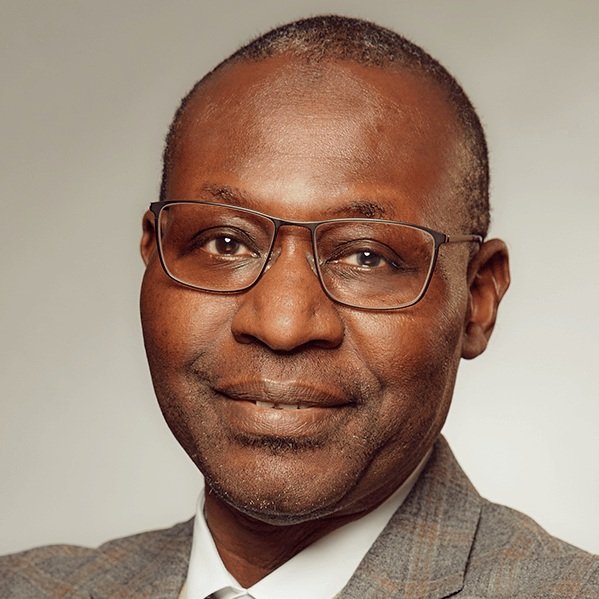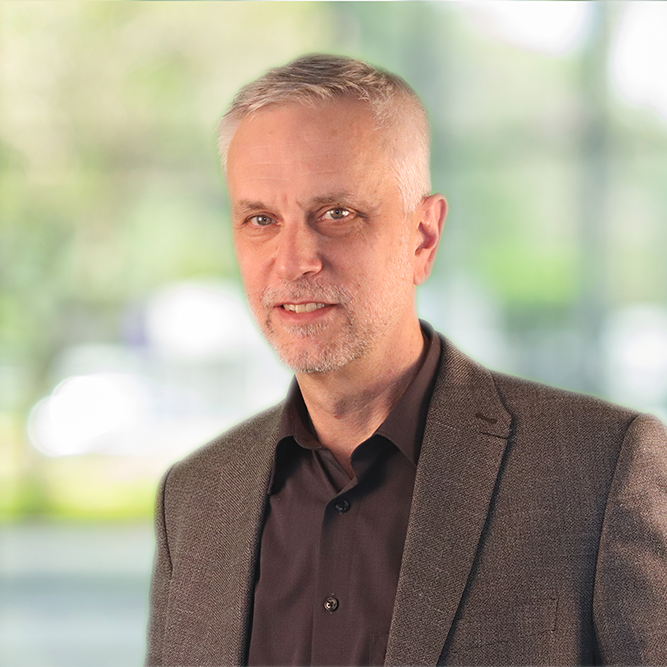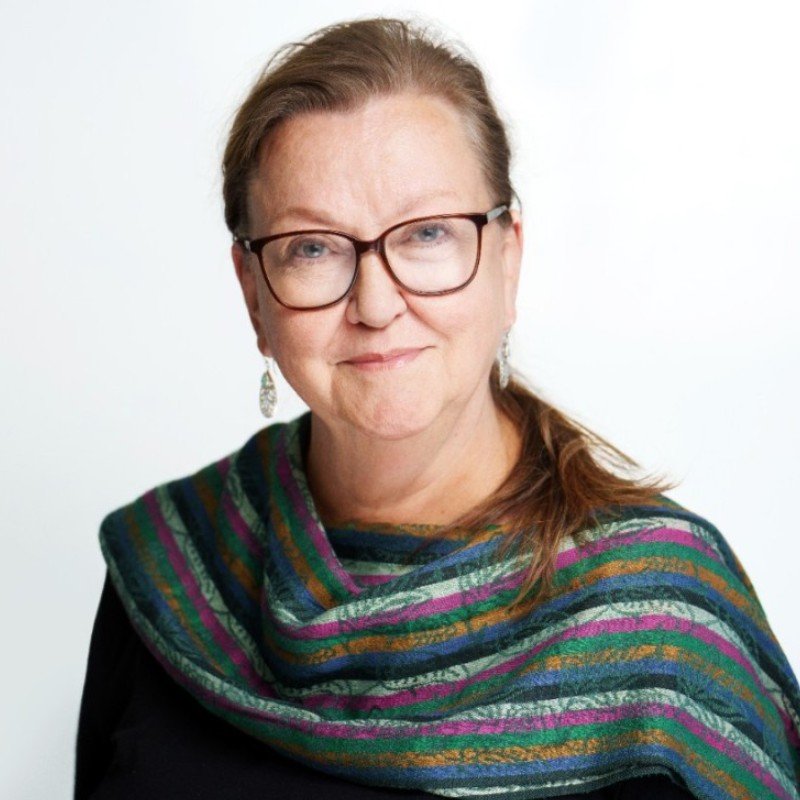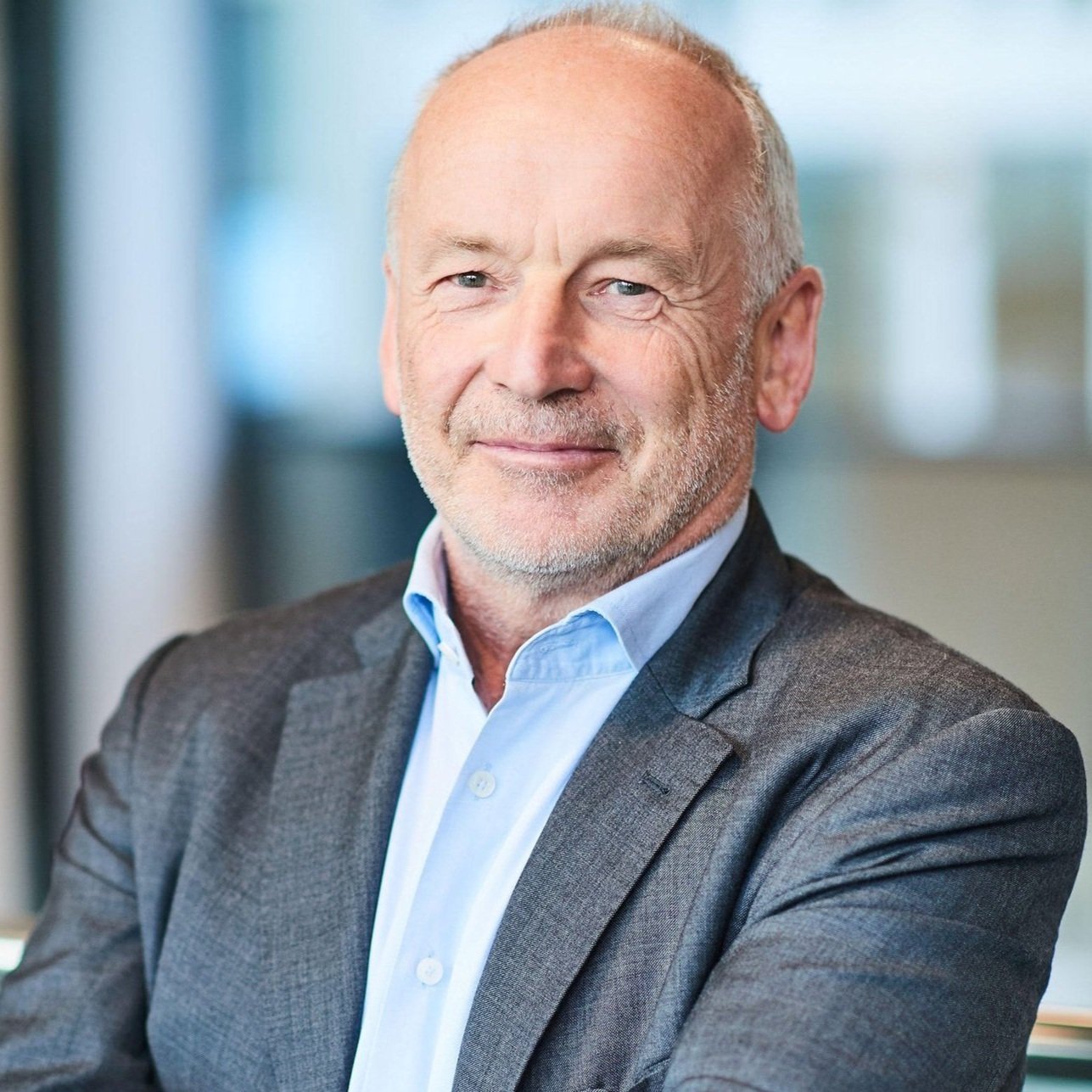Which are the next walls to fall in science and society? Key takeaways from the Falling Walls Science Summit 2023
Photo credit: Frontiers, Falling Walls Foundation
The Falling Walls Science Summit took place from 7 to 9 November in Berlin, Germany, marking its 15th edition. Falling Walls is a leading international, interdisciplinary, and cross-sectoral forum for science discovery and scientific dialogue among leading scientists and society worldwide. The annual event serves as a catalyst for innovation, fostering interdisciplinary dialogue, and promoting breakthrough thinking.
Organized by the non-profit Falling Walls Foundation, inspired by the fall of the Berlin Wall marking a new era of freedom, the three-day event includes inspiring keynotes, thought-provoking discussions, and exciting pitches from some of the most innovative minds in science and technology, exploring how scientific advancements can pave the way towards a more equitable and sustainable future.
Frontiers and the Frontiers Research Foundation, in collaboration with the Falling Walls Foundation, organized two complementary sessions around the climate crisis and planetary boundary science, respectively. The first session, the Climate Action Future plenary table, examined the slow and inadequate progress in climate action. Featuring a group of leaders in science, policy, and academic publishing, the plenary investigated the reasons behind the failure, emphasized the need to reinvigorate the COP process with solution-driven methods in mind, and explored the role of open science in accelerating solutions, mobilizing stakeholders, and triggering a Green Renaissance. Vivienne Parry OBE, science journalist, author, and former BBC presenter, moderated the discussion.
The second session, the Planetary Boundary Science: Advancing Science to Save the Planet round table, continued the discussion by focusing on whether we are producing the right science to find these solutions and provide the answers needed to get the right stakeholders on board. Jean-Claude Burgelman, director of the Frontiers Planet Prize, professor of Open Science Policy (Free University of Brussels), and former Head of Unit for Open Science Policy at the European Commission, moderated the round table.
Below, we offer a summary of the expertise showcased during the two sessions. This includes a look at the role of open science in accelerating solutions and the need for interdisciplinary systems thinking to propel us forward in the face of climate change. Their perspectives also highlight the importance of agency and of initiatives that promote planetary boundary science.
Climate Action Future plenary table
Johan Rockström
Director, Potsdam Institute for Climate Impact Research
“Now we need to deliver. We need to be accountable, we need to align with science, we need to put the money on the table, and we have to do it in an equitable way. Now it’s time to pull up our sleeves and get serious. COP28 must be the mitigation COP. It must be the meeting when we start really showing credible pathways to phase out fossil fuels.”
We have no time to waste in tackling the climate emergency. As a society, we have already used up most of the carbon budget that would allow us to limit global warming to 1.5 degrees. Now we need to act on the words of the Paris Agreement and implement the necessary measures. Johan Rockström emphasized the importance of delivering on what is written. The next COP28 must be the one where we act to reduce our emissions and avoid the worst impacts of climate change. We need bold and decisive leadership to steer us away from the dangerous path we are on. Otherwise, we risk crossing the thresholds of adaptation and social stability, and triggering irreversible changes that would threaten the life support systems of the planet.
But there is also hope and opportunity in this challenge. Through science, we have the solutions that can create a better future for us and the planet. A green energy transition can bring more independence, resilience, and prosperity to our societies. It’s time to make it happen.
Massamba Thioye
Executive, The United Nations Framework Convention on Climate Change (UNFCCC)
“We will not be able to address the challenge of climate and sustainability if we do not do something with our inner development goal. This can be articulated around three main principles: caring, sharing, and daring. Firstly, we need to genuinely care about the well-being and needs of the people and the planet. Secondly, we need to share knowledge, which is why open science is extremely important. And thirdly, we need to set goals and targets not on the basis of what we believe is possible, but on what is needed.”
We need to know why we are failing to act on climate change before we can succeed. Massamba Thioye identified two main reasons that risk climate failure: the misalignment between finances and climate goals, and the unintended consequences of some of our climate solutions. For instance, the World Energy Investment 2023 estimates that over 1 trillion US dollars will be invested in fossil fuels. This means that policymakers face a difficult choice between adopting the right climate policy and risking monetary loss or foregoing climate policy and risking climate failure. Moreover, some of the solutions that could help fight climate change can disrupt existing value chains and render assets obsolete. If these assets cannot be repurposed, the solutions may not be adopted widely enough to be effective. To overcome this climate failure and renew our efforts, we need to focus on the inner development goals. This can create more innovation and solutions for climate and sustainability, remove the obstacles to knowledge and action, and close the gap between what we can do and what we need to do.
Lee Howell
Executive Director, Villars Institute
“It is very important, one, to recognize that what we're talking about are interdisciplinary problems that fundamentally require intergenerational solutions, so we have to build that in. It's not a byproduct. It has to be thought through and integrated. Second, how do we go from anxiety to a sense of ambition or aspiration? That requires agency, the sense that you can shape these systems.”
Using the familiar analogy of a sprint versus a marathon, Lee Howell described the climate crisis as both a sprint and a marathon. We need to act fast and maintain efforts in the long term. As we make plans and goals for 2050 and beyond, we should remember who will be driving, owning, and shaping the solutions. They are most likely the young people who are in school now and feeling a lot of stress and worry about the climate, or eco-anxiety. Howell explained how introducing the concept of systems thinking early on can help overcome those anxious feelings by showing people that they can change some parts of the system. This sense of agency can make them feel more powerful and motivated, turning them from systems thinkers to systems leaders and from eco-anxious to eco-ambitious. The sooner this can be done, the better we can work together across disciplines and generations to find effective solutions.
Lars Peter Riishøjgaard
Director, Global Greenhouse Gas Watch, World Meteorological Organization
“A lot of good ideas are around, a lot of good mitigation steps are being taken, but we are not tying them to what they are doing to the atmosphere. Ultimately, this greenhouse gas concentration curve is what is driving climate change and until we unpack that and see what are the consequences of the actions that we are taking, we are flying somewhat blind into the future and that is not agency.”
As a society, we are not collecting all the correct information to avoid a climate catastrophe. Despite the major climate accords from Rio de Janeiro, Kyoto, and Paris, we are still emitting more greenhouse gases. Not enough is being done to reverse this and one reason for that, according to Lars Peter Riishøjgaard, is that we are not treating climate change as a scientific problem. We are not looking at the data to see what is happening and when, or what the effects of our actions and behaviors are. Without this analysis, we cannot link our emissions to future greenhouse gas levels and then to climate scenarios, and we cannot persuade anyone to act. To move forward, we need to understand the full impact of each decision, what it does, how it helps or harms the environment, and to what extent. With this knowledge, we can make more conscious decisions, measure the impact more accurately, and motivate stakeholders to take initiative.
Frederick Fenter
Chief Executive Editor, Frontiers
"Science must be better shared and shared with the sense of urgency if we are to stand a chance to avert the climate catastrophe. Sharing and sprinting is what we need.”
Open science is a topic of much discussion and debate, but it is not advancing fast enough. The COVID-19 pandemic demonstrated the benefits of open sharing of knowledge through the CORD-19 dataset, which sparked innovation and saved millions of lives. Frederick Fenter believes the same approach should be taken for the climate crisis. The benefits are clear. By making all the existing scientific knowledge available to all, researchers can build on each other's work and artificial intelligence (AI) systems can become more productive and reliable as tools to help scientists address the climate emergency quickly, to name a few. Fenter wants to amplify this message that open science can be part of the solution and have it on the agenda at climate-related forums, such as the upcoming COP28. To unlock the power of science, Fenter introduced the Open Science Charter, an initiative by the Frontiers Research Foundation, which urges governments, research institutions, and funders, as well as industry leaders to commit and act in four main areas:
1. Universal and unrestricted access to scientific knowledge by 2030: Commit to transitioning all published research articles to fully open-access models by the end of the decade
2. Uphold peer-review quality: Preserve and champion the core values of scientific publishing, including registration, validation, certification, and perpetual conservation of scientific findings
3. Transparent pricing linked to quality: Adopt transparent financial models that directly correlate the price of publication with the quality of services offered
4. Strengthen trust in science: Make the knowledge available to the public who helped pay for it and who will benefit from its deployment
Open science can help create a world where scientific knowledge is accessible to everyone, where society is empowered to make informed decisions along the way, and where the collective efforts of millions of scientists around the world can lead to innovative solutions and a healthy and sustainable future.
Planetary Boundary Science: Advancing Science to Save the Planet round table
Johan Rockström
Director, Potsdam Institute for Climate Impact Research
Chairperson of the Jury of 100, Frontiers Planet Prize
“All these transformation pathways, how do you go from quantifications to budget to fairer distribution and pathways to the future? The Frontiers Planet Prize really is all about giving scientific evidence of whether we can actually follow pathways back to a safe landing. That's the combination, the beauty, of quantifying the safe boundaries, translating them to policy and governance, and accelerating transformation pathways.”
In 2009, the first planetary boundaries assessment challenged the scientific community on whether sustainable development should be redefined as prosperity and equity within a stable and resilient planet, quantitatively defining a safe operating space for humanity that kept the planet in the equilibrium state represented by the Holocene, the only state known for certain to support humanity. This concept came from the integration of three areas of science: the great acceleration, tipping points, and resilience and complex dynamics that affect the future of humanity on earth. Johan Rockström expressed that only now are we reaching the point of maturity in understanding that we need a systems approach for the planet to guide sustainable development, but not enough progress has been made. As of 2023, six of the nine planetary boundaries have been crossed. We are at risk of destabilizing the whole system. What's needed is more research; research to know and forecast the trajectory of the extreme weather patterns we are witnessing, research to refine the tipping points and define the safe operating zones more precisely. Science can be the voice of the earth system. This knowledge can then be translated into boundaries, budget allocations, and equitable resource distribution. Supporting planetary science with funding and through initiatives like the Frontiers Planet Prize can stimulate scientific discovery and accelerate solutions for healthy lives on a healthy planet as time is of the essence.
Paul Behrens
Associate Professor, Leiden University
Frontiers Planet Prize international champion 2023
“How do we improve the resilience of our systems under this increasing climate stress? The more optimistic side is then painting a vision for the future. Can you build a narrative around [a more resilient future], instead of this small scary future that we're heading to?”
Scientists are concerned by the compounding effects of the climate crisis. Using food systems as an example, Paul Behrens explained how these systems are under pressure worldwide, which will likely translate to substantial increases in the cost of food and in turn the cost of living, which then increases social stress. We need science to investigate what will happen in these scenarios, how things could unfold, and what can be done to prevent it. Research can help us determine how to adapt and make our systems more resilient to climate stress. If the right steps are taken, like dietary change and rewilding land in the case of the food systems example, we can work with climatic change and improve our resilience. This science is new and can be frightening, but it can also enable us to imagine a better future, one that is achievable with the right sustainable choices. Having strong, science-based narratives will prepare people for what is coming, while also showing them what is possible. This hope can be a powerful force for change and, as Behrens concluded, even minorities can change majority norms with the right commitment.
Wendy Broadgate
Global Hub Director, Future Earth
“The planet is a system of interconnected cycles, and we need very interconnected science to understand the systems themselves, how we people are perturbing those systems, and what solutions we need to bring our behavior and our activities back within planetary boundaries.”
We need science that reflects the complexity and interdependence of earth's systems. Although there is excellent research being done in different fields, there is a greater need for more interdisciplinary science. This will help researchers to understand the bigger picture and find holistic solutions to climate change. Wendy Broadgate highlighted that an accompanying shift in thinking towards more systemic solutions will be key, so that these solutions do not only benefit certain areas while causing harm to others. For example, the food system is linked to the water cycle, land use change, biodiversity, and the climate system, among others. To best address issues in the food system, we need to look at what is happening in these other areas and that requires the expertise of scientists from multiple disciplines working together in collaboration.
Additionally, Broadgate advised scientists to speak the language of policymakers and discuss topics like risks and economic effects when sharing solutions. This can improve the dialogue between science and policy and help overcome the existing challenges of communicating scientific consensus and being more included in the decision-making process.
Maria Nilsson
Professor, Umeå University
Frontiers Planet Prize national champion 2023
“We need to see that we have a huge gap. Most of the research today comes from researchers in the Global North and as researchers, we need to team up with scientists from the Global South to build capacity together."
Professor Maria Nilsson’s research in the areas of climate change and health allows her to put a face to it, helping people understand how climate change affects their lives, both now and in the future. This way of sharing science through narratives engages the public and demands clear action from policymakers. It also reveals a necessary skill for scientists: communication. Scientists need to know how to communicate with different audiences and how to talk about change. A lot can be learned from history, as seen through research on public health and tobacco, for example. Even more can be done by joining together. Solving global problems requires a global network of scientists working alongside one another on the latest research that reflects diverse communities worldwide and then effectively communicating this information to relevant stakeholders to spur change at the individual, organizational, and systemic levels.
Jean Claude Burgelman
Editor in Chief, Frontiers Policy Labs
Director, Frontiers Planet Prize
“The Frontiers Planet Prize is a competition based on scientific excellence, contributing to better understanding [of planetary science], showing potential ways forward and potential ways to scale, connecting several of the boundaries so that we don't have micro solutions, but rather something that can be planetary.”
There is hope that one day there will be a new science that studies the planet as a whole and includes many of the individual sciences we have now, such as environmental science, global health, and sustainability. Research across these areas is essential to guide sustainable development as Burgelman and many others have shared. The closer these scientists collaborate, the better we will understand how the earth’s interconnected systems function. This knowledge will enable us to define safe operating spaces and identify solutions for a healthy, sustainable future more accurately. Concerted global effort and the support of initiatives like the Frontiers Planet Prize make finding such solutions possible. Launched by the Frontiers Research Foundation in 2022 on Earth Day, the Frontiers Planet Prize is a global competition that rewards science that helps the planet remain within one of the nine planetary boundaries. As the community grows, the Frontiers Planet Prize will be able to stimulate more planetary boundary science worldwide, and ultimately more innovation, through a butterfly effect.
To support the Open Science Charter, please sign here.











